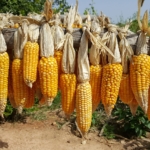


Agroecology & Livelihoods Collaborative (ALC)
University of Vermont
Mozambique Tanzania Malawi Burkina Faso Niger Uganda Kenya Ethiopia Ecuador Bolivia Mali Peru
12/2020—12/2023
The field of agroecology (AE) has a long history. Originating in the 1930s, by the 1970s it was defined as an approach to apply ecological concepts and principles within agricultural contexts. Since then, AE has evolved into an interdisciplinary field that integrates both social and natural sciences. This cultivates a balance of the sciences, practical applications by farmers, and social movements. The integration of these three dimensions (science, practice, and movement) has allowed for the embrace of a transdisciplinary and participatory approach where scientific knowledge is integrated with other knowledge systems (e.g., indigenous or practical knowledge) to co-create new and relevant learning.
The University of Vermont’s Agroecology & Livelihoods Collaborative (ALC) embraces the evolution of AE and takes advantage of its transformative potential. It works with and supports smallholder farmers and their organizations to strengthen their livelihoods and steward the landscapes they inhabit. By necessity, the approach links local contexts with global perspectives that engage with broader agrifood systems, seeking to influence agricultural and natural resource management systems and policies from the bottom up. The ALC works by investigating the advantages and challenges of agroecological implementation at the farm, landscape, and territorial levels.
Read about the Agroecology & Livelihood Collaborative (ALC) here. Read more about UVM partners here.
This project will advance methods, tools, and practices of AE research, linked to principles of AE, within the CCRP at the project level. Specific indicators will be developed that are context-specific and that connect to global AE evidence-based frameworks, including the FAO framework. It will advance project-specific needs as well as the gap in aligned AE frameworks at a broader level. In addition, it will assist in principles-based AE research and practice across the CCRP to address a need for concrete tools and methods to assess and measure agroecological performance.
The first phase will focus on planning for AE support with specific project goals listed below:
Key outcomes will include:
